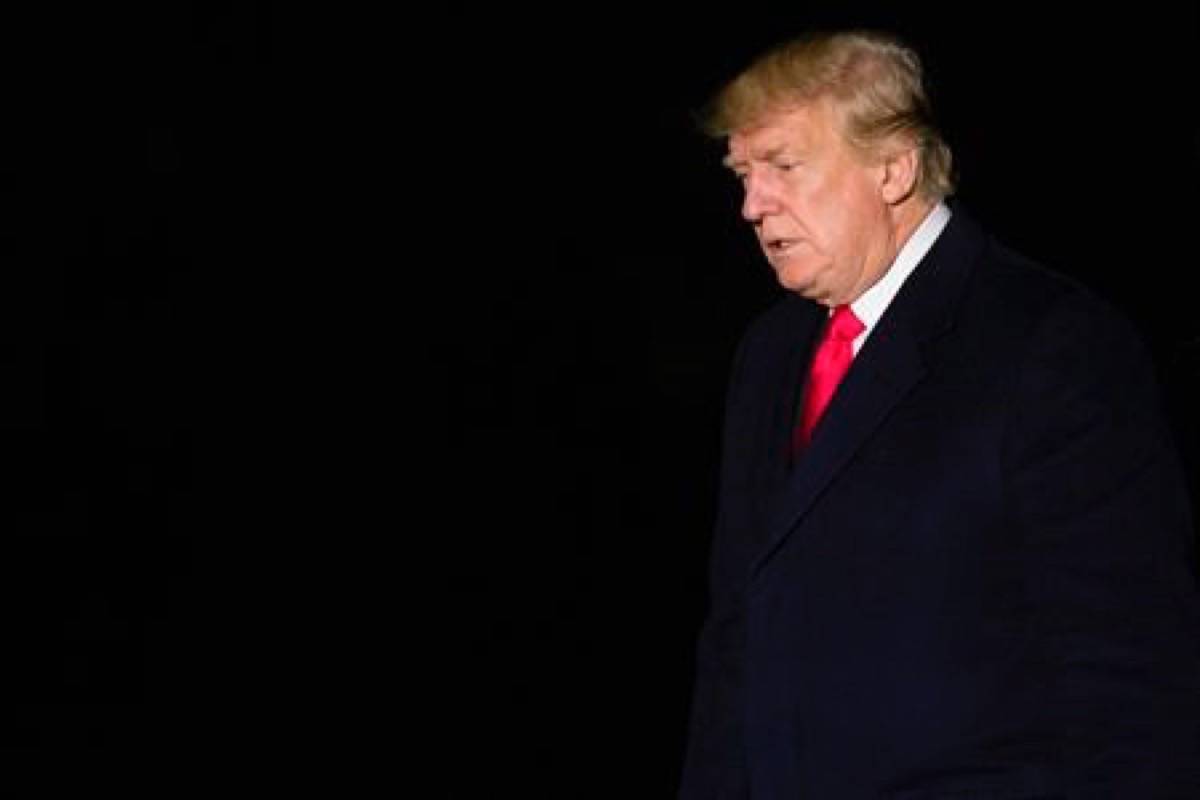The prospect of a constitutional crisis is familiar to Canadians, one that triggers feelings of dread, fear and no small measure of loathing — and now perhaps pity for the United States, which some say Donald Trump is leading towards a constitutional crisis of its own.
The pressure points are everywhere: a president who floats conspiracy theories to undermine the electoral process, deploys the military and pulls other executive levers purely for political gain, revokes White House media credentials for partisan reasons and is willing to flout constitutional norms in replacing his attorney general.
“It does violence to the constitution and the vision of our founders to appoint such a person in such a manner to be the chief legal officer in our country,” the presumptive new House of Representatives speaker Nancy Pelosi said Sunday on ”Face the Nation,” of Trump’s appointment of Matthew Whitaker as the acting replacement for the fired Jeff Sessions.
Democrats are convinced Whitaker, who has not been confirmed by the Senate as the constitution requires, has been named to the role to thwart special counsel Robert Mueller’s Russia probe — something Sessions famously refused to do, frustrating the president by recusing himself from the investigation.
Lawyers in Maryland asked a federal judge Tuesday to nullify Whitaker’s appointment on the grounds that he “cannot, under the constitution or by statute, be appointed to the position,” according to a court filing.
The U.S. Constitution is a robust document that’s already survived more than its share of conflict, said Ryan Hurl, a constitutional scholar at the University of Toronto.
READ MORE: Democrats come on strong in House races, but Republicans make Senate inroads
“Canadians, of course, we’re concerned about the stability of the United States — it can be frightening looking down south at the political scene down there. But we have to remember, the United States has been there before,” Hurl said in an interview. “There are very few eras of good feelings in the United States. There’s a lot of intense partisan conflict; it’s happening all the time. We’re obviously experiencing that now. That’s still several steps away from the complete breakdown of the political system.”
The not-quite-a-crisis escalated on another front Tuesday.
CNN, which is squarely on the front lines of Trump’s war with the media, took the remarkable step of filing a lawsuit against Trump and several aides, alleging that the stripping of correspondent Jim Acosta’s White House credentials last week was a gross violation of constitutional rights.
READ MORE: CNN sues Trump, demanding return of Acosta to White House
“The wrongful revocation of these credentials violates CNN’s and Acosta’s First Amendment rights of freedom of the press, and their Fifth Amendment rights to due process,” the broadcaster said in a statement.
The basic definition of a constitutional crisis is when the document itself, or the institutions empowered to defend it, lack a clear remedy to a problem, said Carissima Mathen, a University of Ottawa professor with particular expertise in Canadian and U.S. constitutional law.
In Canada, examples might include a prime minister who refuses to resign after losing a confidence vote in the House of Commons, or a Governor General withholding royal assent to a law duly passed by the Commons and the Senate.
Or a separation referendum in Quebec in which a bare majority voted yes on a muddy, hard-to-understand question. To head off that possibility, the federal government asked the Supreme Court to lay out standards for a separation vote in 1998.
“So as long as the constitution provides a remedy that people are willing to respect … you can get quite far along the line of bad behaviour without facing a true constitutional crisis,” Mathen said.
Indeed, said Hurl, the U.S. Constitution is actually designed to foster clashes between the various branches of government.
“In the system of the separation of powers, the potential for conflict between the executive and the legislative branch is obviously much more likely,” he said.
“So what we’re really seeing here in the United States, it’s not so much constitutional crises per se as constitutional tensions that actually show how the constitution was meant to operate. A crisis hasn’t really formed merely because there are disagreements between the branches. There’s supposed to be disagreements between the political branches.”
VIDEO: Rick Mercer says Trump makes it ‘very hard to keep up’
It’s when elected leaders choose to circumvent the protections enshrined in a country’s constitution that problems arise, said Mathen, citing the recent example of Ontario Premier Doug Ford invoking the notwithstanding clause to slash the number of voting districts in Toronto’s municipal election.
So how close is the U.S. to a full-blown crisis?
“I’ve been wondering that myself — whether you’re still standing on the edge of the abyss, or whether you’re starting to take a tumble into it,” Mathen said, noting that Americans can take solace in the results of last week’s midterm elections, even if the vote-counting isn’t quite over in Florida and Georgia.
“In the main, people have accepted the results, even when they clearly go against their own interests — perhaps the president notwithstanding,” she said. “I think when you get to the point of people just not being willing to accept that, that’s extremely serious.”
The deeper danger, she warned, lies in the cheapening of the constitution’s values in the eyes of the people it’s designed to protect.
“My concern is the coarsening or the toughening of people’s ideas about the constitution, and do they actually think it’s something worth preserving in and of itself, regardless of even if it may enable a result that they don’t like,” she said. “When you have people that don’t appear to respect the institutions, that’s very corrosive. That’s very corrosive. And that’s what I have been watching with great concern.”
James McCarten, The Canadian Press



